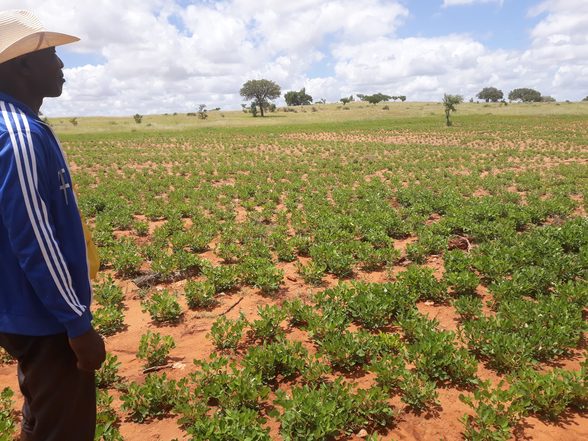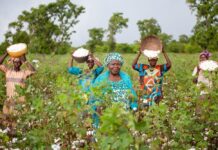
|
On March 2nd, 2023, SSG held a national workshop on seed systems development in Madagascar and presented a recently-completed survey of farmer crop variety preferences and seed access. It was an important milestone for the “Project for Seed Systems Development and Adoption of Improved Seed in Madagascar” (PASSAM), funded by Canada’s International Development and Research Center (IDRC). The meeting was officially opened by Madagascar’s Minister of Agriculture and Livestock, Mr. Harifidy Ramilison, who gave a strong endorsement for SSG’s public-private model for seed systems development and urged the partners of the initiative to “go further, go faster”, in developing a value chain that delivers improved seed to Madagascar’s farmers. Other participants at the event included USAID, Catholic Relief Services, the World Bank, IDRC, FAO, and several private seed companies. The lively discussions that followed several presentations served as a veritable road map for investments in seed systems development for the country. Madagascar’s seed supply situation is similar to many of the left-behind countries where SSG works. Organizations with minimal scientific or technical knowledge of improved seed play a leading role in the production and free distribution of outdated crop varieties. Seed supplies ebb and flow based on donor funding levels, and most farmers simply continue to recycle seed from previous harvests. Meanwhile, national crop breeders are left out of the loop, and struggle with insufficient funding to properly evaluate new varieties or even produce sufficient quantities of foundation seed. Madagascar cannot afford this kind of status-quo. Child malnutrition rates hover around 40% (fourth highest in the world), and 81% of the population are trapped in absolute poverty. Meanwhile, population growth continues at an annual rate of 2.7%, meaning that Madagascar’s population will double within 25 years. We believe the best way to reduce hunger and preserve Madagascar’s unique and precious environment (which is under constant threat from the need for more farmland) is to promote the “sustainable intensification” of smallholder agriculture, using higher-yielding seed and improved agronomic practices as the catalyst. SSG, in collaboration with the Ministry of Agriculture and Mukushi Seed Company of Zimbabwe, has introduced hybrid maize parental lines which are currently growing at the national research station in Antsirabe, along with improved varieties of beans, rice, groundnut, peanut, and potato. In early April, staff of four local, private seed companies will receive training on how to cross-pollinate the maize lines to form hybrid seed, which is capable of doubling or even tripling farmers’ yields. Growing more food on less land, responsibly, is the essence of sustainable intensification. It’s a promising destiny which SSG is excited to be embarking on with our cherished Malagasy partners. |









thanks alot of information goodjob
terimakasih informasinya menaaarik
Comments are closed.